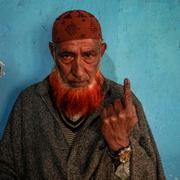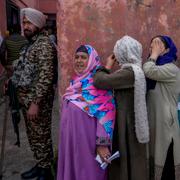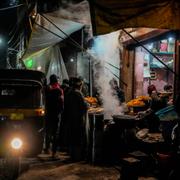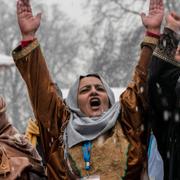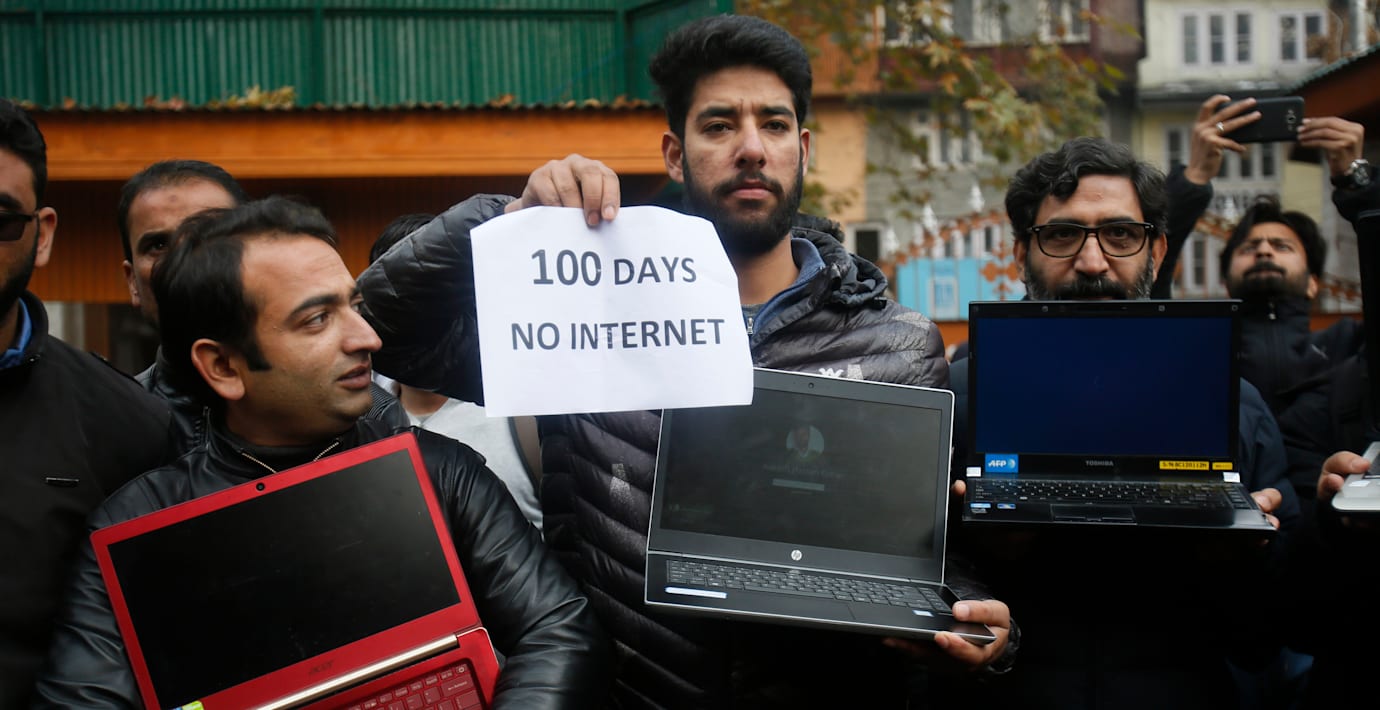
Indien häver 4G-förbud i Kashmir – efter 550 dagar
Indien har upphävt ett förbud mot höghastighetsinternet för mobila enheter i den omstridda regionen Kashmir, efter 18 månader. Det rapporterar AP.
Ordern utfärdades på fredagen, men regionens inrikesminister Shaleen Kabra uppmanade samtidigt polismyndigheten att ”noggrant övervaka effekterna av de lyfta restriktionerna”, skriver nyhetsbyrån.
Förbudet infördes i augusti 2019, i samband med att Indien fråntog Kashmir sin självständighetsstatus. I januari förra året tilläts invånarna använda långsam uppkoppling för att besöka hemsidor som regeringen godkänt.
bakgrund
Indien fråntog Kashmir sin självständighetsstatus i augusti 2019
Wikipedia (en)
On 5 August 2019, the Government of India revoked the special status, or limited autonomy, granted under Article 370 of the Indian Constitution to Jammu and Kashmir—a region administered by India as a state which consists of the larger part of Kashmir which has been the subject of dispute among India, Pakistan, and China since 1947.Among the Indian government actions accompanying the revocation was the cutting off of communication lines in the Kashmir Valley, a region gripped by a prolonged separatist insurgency. Several leading Kashmiri politicians were taken into custody, including the former chief minister, Government officials described these restrictions as designed for preempting violence, and justified the revocation for enabling people of the state to access government programmes such as reservation, right to education and right to information.The reaction in the Kashmir Valley was effectively reduced to silence because of cut-off communication. Many nationalists celebrated, declaring the move to herald public order and prosperity in Kashmir. Among political parties in India, the revocation was supported by the ruling Bharatiya Janata Party, and, among others, by the Bahujan Samaj Party, the Aam Aadmi Party, AIADMK, Telugu Desam Party, YSR Congress Party, BJD and the Shiv Sena. It was opposed by the Indian National Congress, Jammu & Kashmir National Conference, Jammu and Kashmir Peoples Democratic Party, Trinamool Congress, Janata Dal (United) and the DMK. In Ladakh, people in the Kargil area, who are Shia Muslim and form the plurality of the population of Ladakh, protested; however, the Buddhist community in Ladakh supported the decision.The President of India issued an order under the power of Article 370, overriding the prevailing 1954 Presidential Order and nullifying all the provisions of autonomy granted to the state. The Home Minister introduced a Reorganisation Bill in the Indian Parliament, seeking to divide the state into two union territories to be governed by a lieutenant governor and a unicameral legislature. The resolution seeking the revocation of the special status under Article 370 and the bill for the state's reorganisation was debated and passed by the Rajya Sabha – India's upper house of parliament – on 5 August 2019. On 6 August, the Lok Sabha – India's lower house of parliament – debated and passed the reorganisation bill along with the resolution recommending the revocation.
bakgrund
Kashmirkonflikten
Wikipedia (sv)
Kashmirkonflikten är en territoriell dispyt mellan Indien, Kina och Pakistan om vilken stat Kashmir tillhör. Ibland har militära konflikter blossat upp. Förenta nationerna har haft ett av sina äldsta uppdrag sedan 1949 att övervaka stilleståndslinjen, tidigare kallad Cease Fire Line (CFL), som nu går under benäminingen Line of Control, i Kashmir mellan Indien och Pakistan. Observatörstyrkan (UNMOGIP = United Nations Military Observer Group in India and Pakistan) är där än idag.
Omni är politiskt obundna och oberoende. Vi strävar efter att ge fler perspektiv på nyheterna. Har du frågor eller synpunkter kring vår rapportering? Kontakta redaktionen
